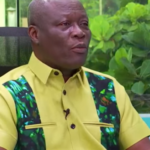The President of the Ghana Institute of Planners, Mr Alfred Kwesi Opoku, has called for the strict enforcement of laws and policies on slum dwelling.
He said although there were a number of existing policies that could have contributed to prevent the creation of slums, the lack of effective implementation over the years had contributed to the rising spate of slum dwellers in the urban cities.
Mr Opoku was speaking at the launch of a research report on “Slums and Informal Settlements Development towards Making Ghana’s Cities Resilient,” in Accra.
The research sought to go beyond the theoretical and general studies to obtain in-depth understanding of slums and informal settlements from the perspective of residents in those settlements in the Ghanaian context, where achieving resilient cities appears to be eluding governance and housing policy makers.
Mr Opoku said although there were many past and ongoing interventions to provide housing for the low income earners and also upgrade slums in the country, there were inadequate concerted effort to effectively coordinate all the pieces of intervention.
Donor agencies
He lamented that a number of donor agencies such as the Department for International Development (DFID), World Bank and others were working in isolation without any coordination with the many interventions.
For his part, Dr Kwadwo Ohene Sarfoh, a housing and urban development practitioner, said slums were the first step of urban migration and whatever the migrants found there were better than where they were coming from.
He said although Ghana desired to plan cities, it did not have what it took to achieve that dream and urged the government to look at the people who lived in slums and not their structures.
He said slum was not a problem to be solved but a human reality to live with and there was, therefore, the need for the government to devise ways of making life comfortable for them.
Stakeholders
A member of the Federation of Urban Poor in Ghana, Madam Rose Awudjah, indicated that it was important for stakeholders to include slum dwellers in all interventions concerning them as they lived on the ground and were better informed than outsiders.
She said the social life in the slums negatively affected the development of children as majority of them were not going to school and were exposed to drugs, child prostitution, robbery and teenage pregnancy among other social vices.
According to her, the sanitation in the slums was extremely poor resulting in outbreak of diseases such as cholera and typhoid, with the regular flooding of the area and poor ventilation, as well as excessive heat affecting the health of the people and undermining security and safety.
Slum dwellers
A senior lecturer at the Department of Planning of KNUST, Dr Ronald Adamptey, indicated that gaps in the design and implementation of the urban housing policy was one of the major challenges facing slum dwellers.
He said the housing policy was contradicted because it did not take into consideration family and friends as most at times people moved into places and later allowed others to join them.
He said slum dwellers had no plans to return permanently and there was, therefore, the need to provide them with basic necessities such as water, hospitals, schools and toilet facilities among others.
Dr Adamptey said city authorities must not undertake forced evictions as it was not an option but rather collaborate with all stakeholders to provide social amenities to slum dwellers.
Background
Slums are unapproved settlements that are characterised by over crowding, poor quality housing, inadequate access to potable water, sanitation and lack of social economic infrastructure such as schools, hospitals, streets and public places.
Source: Graphic.com.gh














